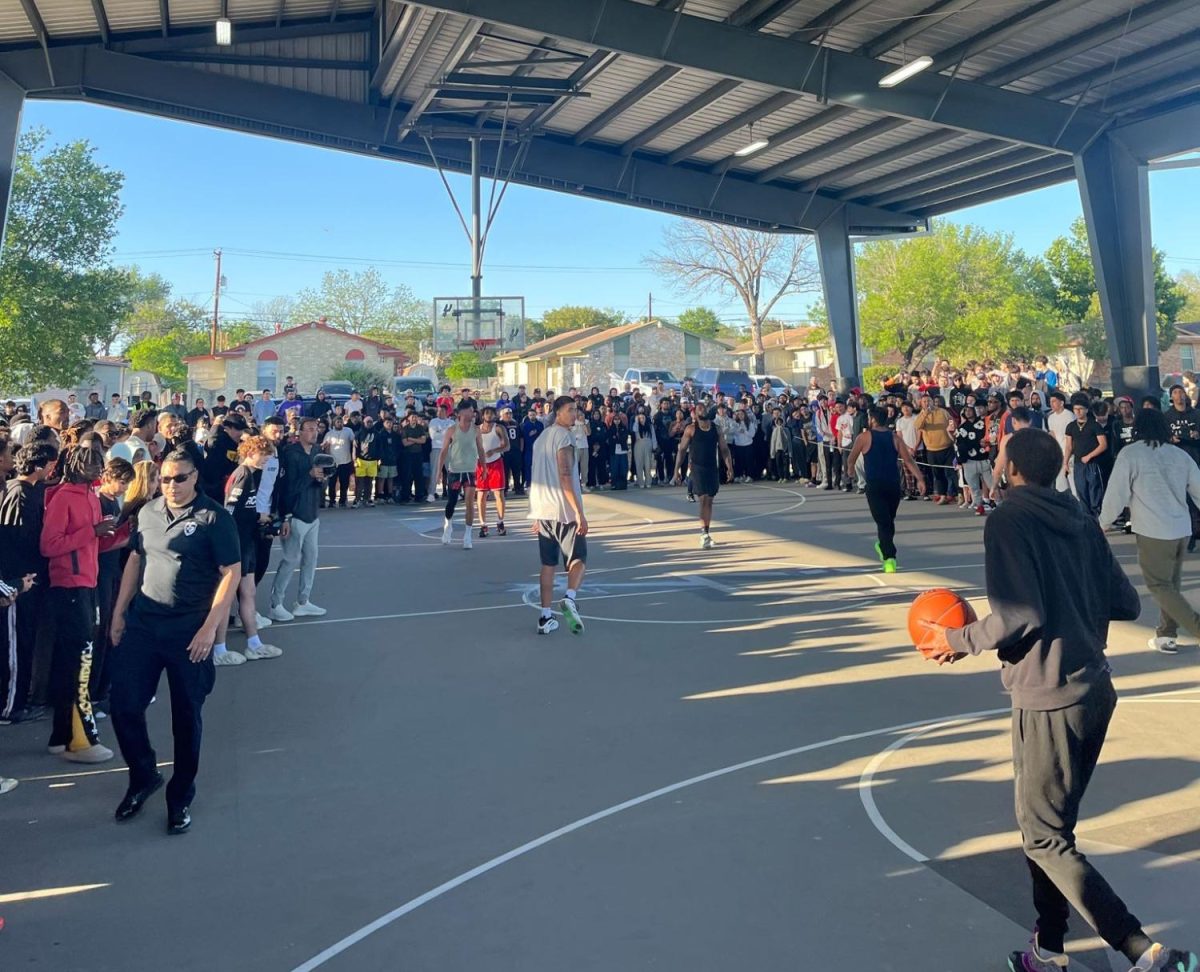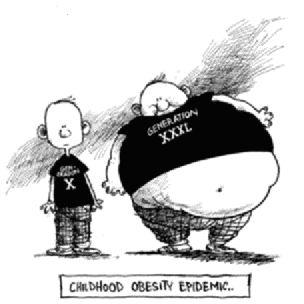 Standing in the mirror, holding in their stomach, and trying to make the extra weight disappear is an all too familiar ritual for most American youths.
Standing in the mirror, holding in their stomach, and trying to make the extra weight disappear is an all too familiar ritual for most American youths.
Now considered an “epidemic,” the Centers for Disease Control (CDC) reports that obesity is a problem for 14% (approximately 12.5 million) of adolescents and has increased the risks for heart disease and type 2 diabetes for people under 30. The proposed cause of obesity in adolescents is the lack of motivation to maintain a healthy lifestyle; children and teenagers faced with enticing reality television and the temptation of online gaming has erased the idea of participating in daily exercise and eating healthy foods.
“Americans now think that life is an ‘instant guarantee’ and that effort isn’t needed,” freshman Sam Dehm said. “People and students should have the drive to do something. Technology and online gaming is fine in small amounts, but [people] can’t be ignorant that eating fast food and sitting all day isn’t unhealthy.”
It’s quite plausible the social stigma of having instant gratification in everyday activities has lessened the drive to actively pursue goals. “Obesity is stopping people from being productive; a lot of the motivation to continue a healthy lifestyle has dropped,” freshman Jay Rodriguez said.
Obesity = BMI of 30 or greater.
There’s a fine line of being considered obese, which is what hasn’t been defined for many Americans. According to webmd.com, being obese means having so much body fat that your health is in danger. Your body mass index, or BMI, and your waist size decides whether your weight is dangerous to your health. Your BMI is a combination of your height and weight. If you have a BMI of 30 or higher, your extra weight is putting your health in danger.
Perceiving, striving, and sometimes, fighting for perfection is a new American standard.
American society usually commands its members to fit into “norms”; obese people can be ostracized, bullied, or judged based off of the polarity of their appearance to what people perceive to be the “perfect body”. This standard of perfection has hurt millions.
“Others must understand that many obese or overweight people don’t choose to be unhealthy,” freshman Krystan George said. “My grandmother was at risk for thyroid cancer, and as a result of having her thyroid removed she gained weight. Many health issues contribute to obesity, not just fast food.”
Being obese isn’t something people consent to; hereditary problems such as thyroid cancer displace the metabolic hormone which burns fat to make energy. Although, understanding that there are other contributors, such as metabolic complications, to obesity outside of fast food is lacking in the perception of many Americans. Currently, the state of Oklahoma is launching the OKC Million ( a weight loss initiative for the citizens of Oklahoma to lose one million pounds collectively) to combat obesity and help its citizens to maintain a healthy lifestyle. An increasingly publicized effort to combat obesity is First Lady Michelle Obama’s effort to fight obesity in young children and adolescents; traveling to different elementary schools and pushing for healthier food in schools.
“I don’t think that fast food industries understand the impact that greasy food has on individuals,” junior Isabelle Morales said. “It’s important for responsibility to be taken on behalf of what consumers eat. But, it’s also important for people to be responsible for themselves. A lot of foods that are served in schools now can definitely help.”
Steps to combat obesity can be seen everywhere. From school posters to statewide initiatives, the battle with obesity is becoming an obsession, and there seems to be no end in sight.




















Smithg797 • Sep 21, 2017 at 4:18 am
I went over this site and I conceive you have a lot of wonderful information, bookmarked . acbgbkgfkefdeceg